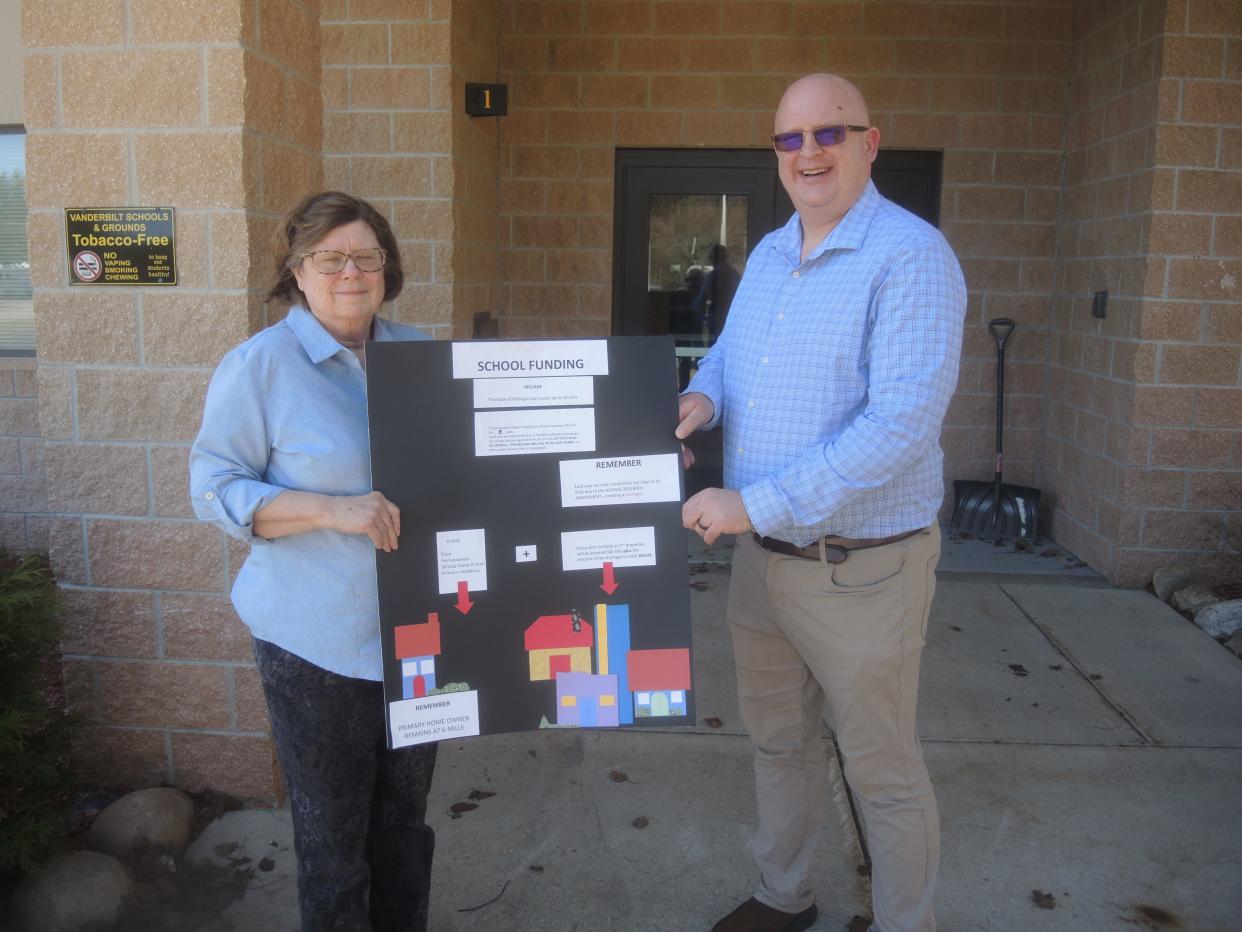Voters to consider millage proposal for Vanderbilt Area School

VANDERBILT — Voters who reside within an area served by the Vanderbilt Area School will consider a millage proposal on the May 2 ballot.
Here is what is at stake in the election: $24,000 or about $2,000 a month.
That's the amount of revenue that will be raised if voters approve assessing an additional 12 mills of property taxes for the school. The millage had won approval previously but failed last November by a few votes.
More: Millage failure may strain Vanderbilt school budget
"People who own their home need to understand that this is not an increase for them. The people that this will affect own a business, a camp or vacation property," said Margaret Schweitzer, a member of the school board for the Vanderbilt Area School (VAS).
Currently up to 18 mills can be levied to financially support the public schools in Michigan. The tax for homes that serve as the primary residence for property owners is six mills. An additional 12 mills can be applied to businesses or secondary residences if approved by the voters. One mill on a property with an assessed value of $100,000 is equal to about $100 in taxes.
Schweitzer said the state adopted the Headlee Amendment in 1978 which stipulates that property taxes can't increase faster than the rate of inflation. Because of that, VAS is actually receiving less than 18 mills of revenue. For the 2022-23 school year, this amounted to about $24,000.
"This millage would account for that shortage," noted Schweitzer.
Keith Smith, superintendent of the Vanderbilt Area School, said the district's budget for this year is a little over $1 million to take care of slightly more than 100 students. VAS is what is known as an out-of-formula district.
"We don't receive state aid, just revenue from the property taxes," said Smith.
Since the proposal failed last year by a handful of votes, Smith believes that voters may have been confused about the issue.
"In districts like ours where it might not pass the first time, it's not until people see the impact on kids and what it does to the school, it usually passes on the second attempt," he said.
Smith said the 12 mill tax for businesses is the norm in the state.
"No one likes taxing business but the reality from a business owner's standpoint is it doesn't matter if you are operating in Vanderbilt, Gaylord or Mackinaw City, this operating millage exists everywhere in Michigan," he added.
Subscribe Check out our latest offers and read the local news that matters to you
The $24,000 that was collected until last November might represent a rounding error in bigger districts.
"VAS is running about a $150,000 deficit in the budget. With Covid and other revenue we've been able to make that up. But that ($24,000) is a significant step toward getting us back to a balanced budget," Smith said. "For the average homeowner this doesn't affect their taxes."
There will be a presentation on the millage at 6 p.m. on Tuesday, April 18 at the Elkland Senior Center, 7910 Arthur St. in Vanderbilt.
— Contact Paul Welitzkin at pwelitzkin@gaylordheraldtimes.com.
This article originally appeared on The Petoskey News-Review: Voters to consider millage proposal for Vanderbilt Area School

